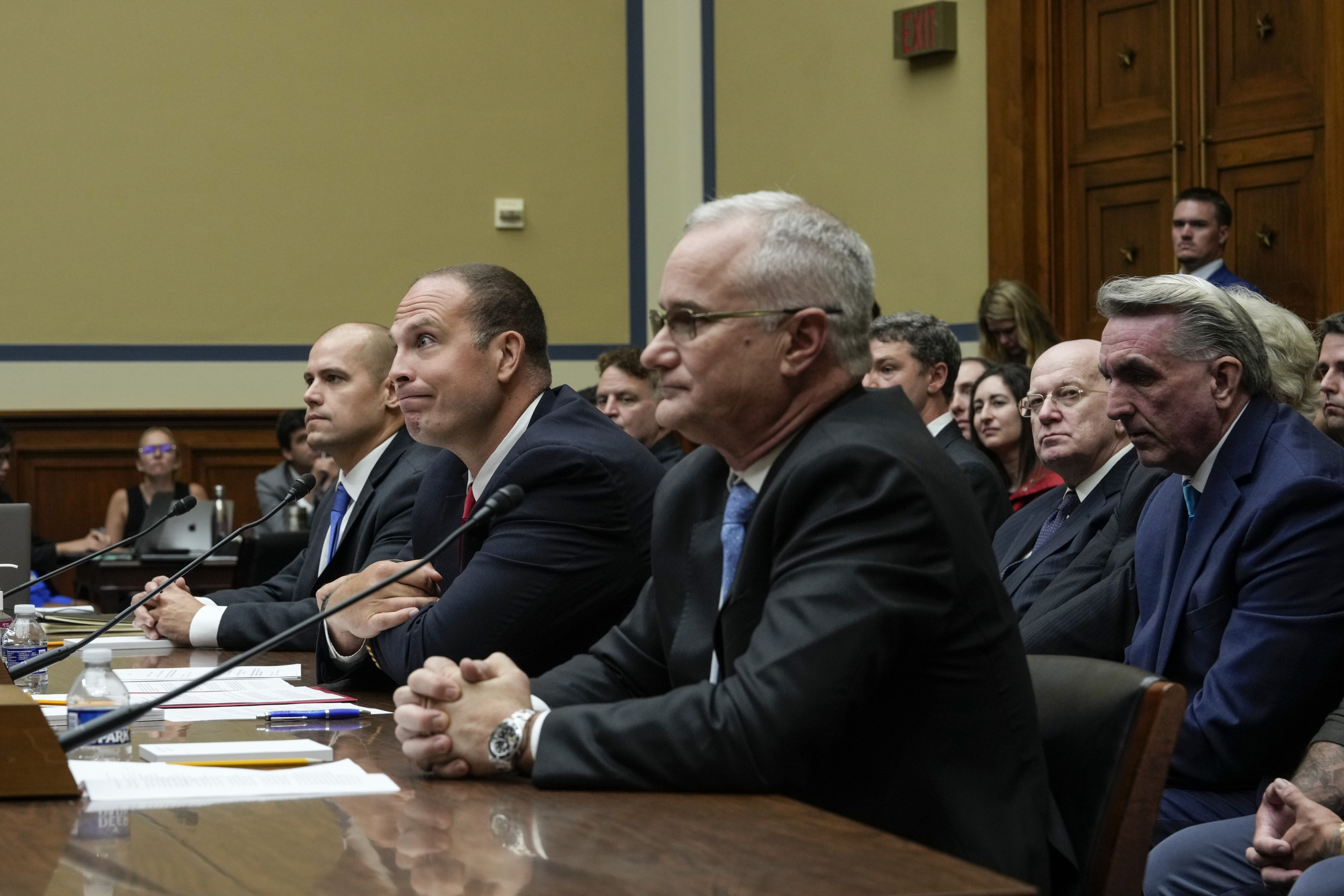UFO hearings haven’t changed what Americans believe
Americans on the whole have remained largely unmoved by the testimony given at a special hearing of the House Oversight Committee on whether the government was covertly aware or in possession of alien technology and alien life.
According to two polls of 1,500 U.S. adults, conducted on behalf of Newsweek by Redfield & Wilton Strategies before and after the UFO hearing in late July, fewer Americans are now as sure about the claim that the federal government is in possession of an alien craft, and slightly more people now believe that the government knows more than it is letting on.
During that session, part of an investigation of claims regarding UFOs, witnesses testified that the government had been aware of non-human activity since the 1930s and reiterated allegations that a top-secret military program already had a fully intact UFO in its possession. The Department of Defense has denied the claims.
The alien probe was launched after David Grusch, a United States Air Force veteran who previously worked at the National Reconnaissance Office on UFOs, told NewsNation, following an article on the same subject in The Debrief, that the government had retrieved several “non-human origin technical vehicles,” some of which contained “dead pilots.”

Drew Angerer/Getty Images
In the opening statement to his testimony in front of the committee, he said under oath that “the U.S. government is operating with secrecy—above Congressional oversight” with regards to Unidentified Aerial Phenomena (UAP).
Between a survey on July 7 and another on August 5-6, the number of people who said they were not at all familiar with the House Oversight Committee investigation decreased, from 43 percent to 35 percent, but those who described themselves as very familiar with the news decreased by a percentage point to 16 percent.
More Americans still support the investigation than oppose it, growing slightly from 40 to 43 percent compared to the 10 percent who said they were opposed in both polls.
Before the UFO hearing, 36 percent of U.S. adults said they didn’t know whether they believed the claims that the government possessed a vehicle of “non-human origin,” while 34 percent agreed. Both rose marginally, with now an equal number—37 percent—saying they were sure or unsure that the government had alien technology.
Grusch previously alleged that the U.S. government was operating a top-secret military program tasked with retrieving “spacecraft if you will, non-human exotic origin vehicles that have either landed or crashed.”
The number of those polled who said they did not believe that the government was harboring a UFO decreased from 30 percent in July to 26 percent in August, suggesting the hearings may have had some small impact on American’s skepticism towards the government.
DOD spokesperson Sue Gough previously told Newsweek that it had “not discovered any verifiable information to substantiate claims that any programs regarding the possession or reverse-engineering of any extraterrestrial materials have existed in the past or exist currently.”
“[The Department of Defense] takes public interest in UAP seriously,” she added. “The department is fully committed to openness and accountability to the American people, which it must balance with its obligation to protect sensitive information, sources, and methods.”
While the number of those polled who said they believed that the U.S. government knows more about UFOs and alien life than they have told the public increased somewhat, from 57 percent to 59 percent, fewer people now believe the government would be able to hide the existence of aliens from the public.
The number of people who believed it could hide evidence decreased slightly from 59 percent to 57 percent, which could be driven either by a growing belief in the witness testimony or a growing belief that the government is telling the truth, and there really have been no alien visits to Earth that we are aware of.
Those who thought the government would not be able to hide evidence of UFOs increased by the same amount from 21 to 23 percent.
Newsweek approached the House Oversight Committee via email for comment on Friday.


